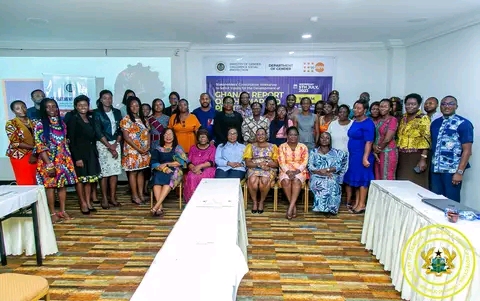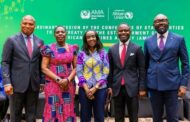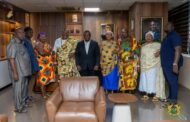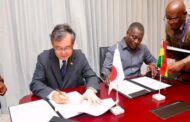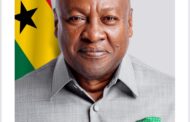In order to gather suggestions for the creation of Ghana’s Report on the Maputo Protocol, the Department of Gender (DoG) under the Ministry of Gender, Children, and Social Protection (MOGCSP) in collaboration with the United Nations Population Fund – UNFPA Ghana, hosted Stakeholders to a one-day consultative workshop.
Among other objectives, the workshop sought to identify and take stock of measures adopted in the implementation of the provisions in the Maputo Protocol.
It was also to canvas for more support in accelerating towards the attainment of gender equality and the fulfilment of women’s human rights among others.
The aim of the workshop was to enhance the promotion and protection of women’s rights in Africa by establishing women as equal partners with men in community development and by providing equal chances for both genders to participate in significant societal roles.
Addressing participants on behalf of the Minister for Gender, Children and Social Protection, Hon. Lariba Zuweira Abudu, the Deputy Minister, Hon. Francisca Oteng Mensah indicated that MoGCSP is committed to partnering Civil Society Organizations, International bodies, and other stakeholders to promote gender equality, women’s rights, and social justice in Ghana by sharing experiences, best practices, and resources through meaningful partnerships and collaboration.
The workshop, according to Madam Faustina Acheampong, Director of the Department of Gender, is a critical step in assessing successes, identifying obstacles, and formulating plans for a more inclusive and equitable society.
In a statement delivered by Madam Selina Owusu from the UNFPA-Ghana, the workshop emphasized the importance of state reporting to track progress and identify challenges in implementing the Maputo Protocol;
“The workshop will strengthen Ghana’s reporting capacity and foster partnerships for transformative change”. She added.
The workshop also saw civil society organizations, women’s rights groups, government agencies, and other relevant organizations put in their unique viewpoints to ensure that the national report is comprehensive and reflect the views of all stakeholders.
Source:Mybrytfmonline.com/Kwabena Nyarko Abronoma



